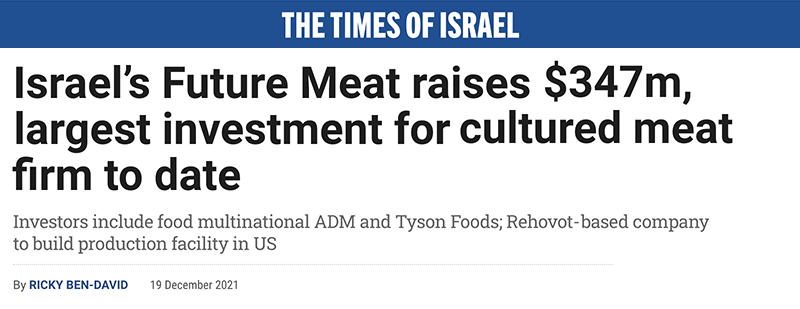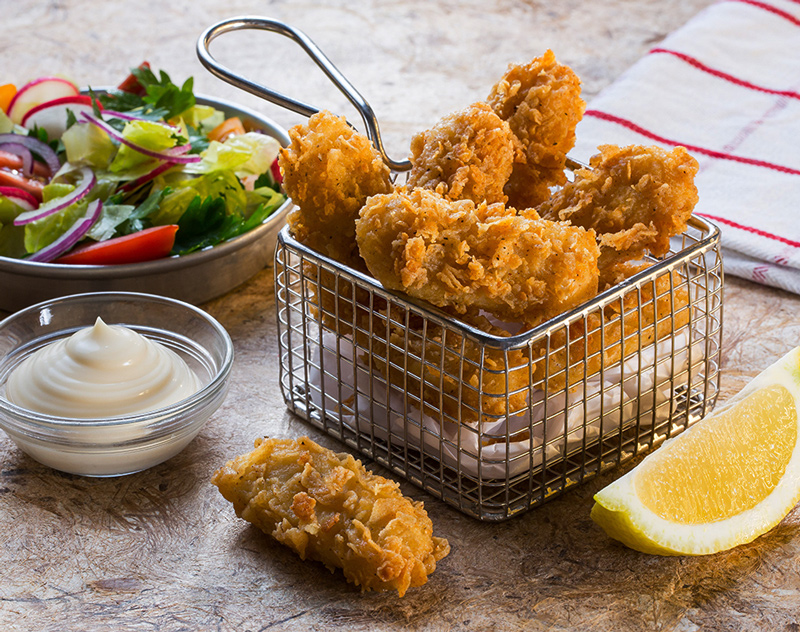

Israel’s Future Meat, a Jerusalem-based biotechnology firm that creates chicken, lamb, and beef products made from animal cells, has raised $347 million in a Series B funding round, the largest single investment in a cultured meat company to date.
The investment was co-led by ADM Ventures, the investment arm of Chicago-based food multinational Archer-Daniels-Midland, and an unnamed global tech investor, Prof. Yaakov Nahmias, founder and CEO of Future Meat, told Bloomberg on Saturday.
US meat company Tyson Foods, the second-largest processor and marketer of meat products and an existing investor in Future Meat, also participated in the round.
Nahmias said the company will use the funds to build a production facility in the United States, and hopes to hit US market shelves later in 2022, pending regulatory approval. This past summer, Future Meat opened what it called the world’s first industrial cultured meat production facility in Rehovot, its headquarters, with the capacity to produce 500 kilograms (about half a ton) of cultured product per day.

The facility further supports Future Meat’s larger efforts “to create a more sustainable future,” the company has said.
“We are incredibly excited by the massive support of our global network of strategic and financial investors,” said Nahmias. “This financing consolidates Future Meat’s position as the leading player in the cultivated meat industry, just three years after our launch. Our singular technology reduced production costs faster than anyone thought possible, paving the way for a massive expansion of operations. Our team will break ground on the first-of-its-kind, large-scale production facility in the United States in 2022.”
Future Meat’s technology is based on the work of Nahmias, a professor at the Hebrew University of Jerusalem, and is licensed through Yissum, the technology transfer company of the university. The company grows animal cells in bioreactors and says its end product is indistinguishable from animal meat. The cells do not undergo genetic modifications and can multiply indefinitely. The process is more environmentally friendly than farming, producing 80 percent fewer greenhouse emissions and using 99% less land and 96% less freshwater than traditional meat production, according to the company.
“While Future Meat is leading the pack as the fastest-growing company in this space, I truly see the entire cultivated meat industry as a massive agent of change, creating a sustainable future for coming generations,” added Nahmias.

Future Meat’s technology is based on the work of Nahmias, a professor at the Hebrew University of Jerusalem, and is licensed through Yissum, the technology transfer company of the university. The company grows animal cells in bioreactors and says its end product is indistinguishable from animal meat. The cells do not undergo genetic modifications and can multiply indefinitely. The process is more environmentally friendly than farming, producing 80 percent fewer greenhouse emissions and using 99% less land and 96% less freshwater than traditional meat production, according to the company.
“While Future Meat is leading the pack as the fastest-growing company in this space, I truly see the entire cultivated meat industry as a massive agent of change, creating a sustainable future for coming generations,” added Nahmias.